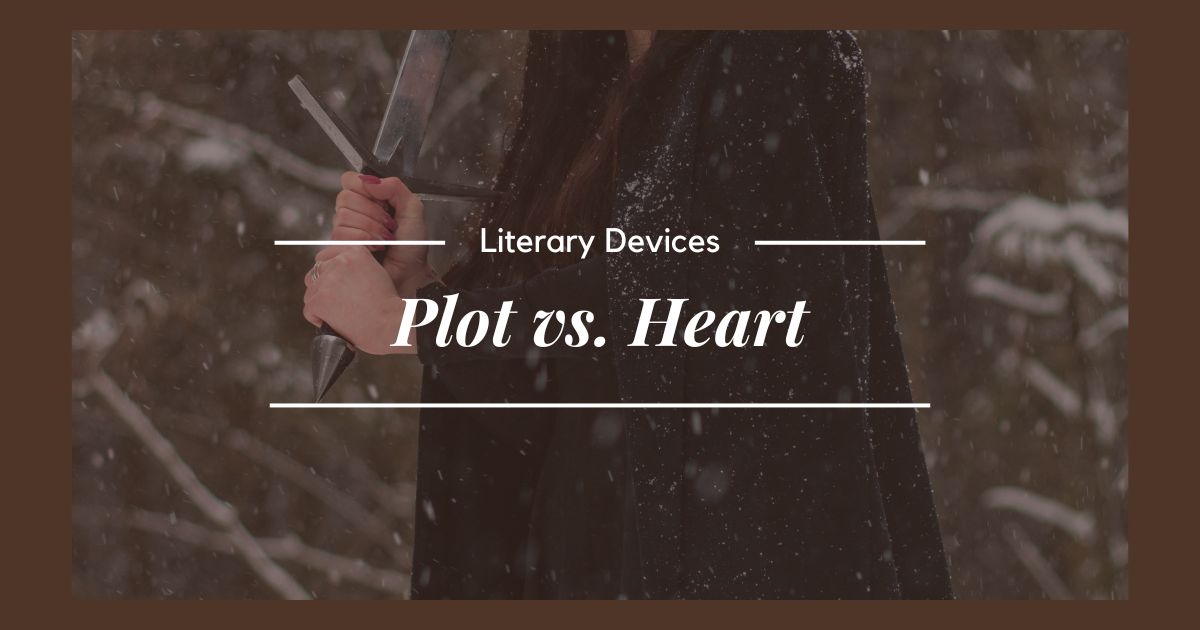Have you ever wondered what the term “high concept” really means in the world of books and movies? It’s a phrase that might sound like it belongs in the realm of the esoteric, but actually, it’s quite the opposite.
Whether you’re in the mood for pulse-pounding action or a deep dive into the intricacies of human emotion, understanding high and low concept can be your compass in the vast sea of literature.
Let’s dive in.
What does “high concept” mean?
If you’ve never come across this phrase before, it’s easy to assume “high concept” means “hard to understand” but that couldn’t be farther from the truth. High-concept stories have a clear premise, often with a straightforward plot. That’s basically it. They tend to be plot-driven and sometimes rely on tropes.
Some of the most popular books and movies of our time are considered high-concept. “Clear and straightforward” does not inherently mean these stories can’t also be very meaningful.
Here are some high-concept books:
- The Handmaid’s Tale by Margaret Atwood
- Lord of the Rings by J.R.R. Tolkien
- Fourth Wing by Rebecca Yarros
So, what is “low concept,” then?
If a story is low-concept, it’s probably harder to explain what it’s about. These tend to be character-driven, often focusing on life and relationships, with less-obvious narrative hooks.
Often, these books don’t fall under the category of mass appeal, but this doesn’t mean they aren’t enjoyable reads. In fact, some “low-concept” genres are very popular with the right audience, including romance and coming-of-age stories.
Here are some low-concept books:
- A Gentleman in Moscow by Amor Towles
- Mary Jane by Jessica Anya Blau
- A Dowry of Blood by S.T. Gibson
Each has its pros and cons.
High-concept stories rely on unique storytelling; otherwise, they run the risk of feeling contrived or cliched.
On that note, a lot of mass media is high-concept, which can sometimes give it a bad rap – in the same way that some look down on genre fiction or any popular books or movies. In my opinion, it’s silly to reject books or movies just because everyone else likes them. Your experience with a story is yours alone, and if you’re frequently disappointed by book hype, you may just be setting the wrong expectations going in.
Low-concept stories, on the other hand, might feel slow or mundane by comparison. Readers may come away from the story asking what it was about. However, with the right story, it can stir up emotions or make people ask questions.
A lot of “cozy” stories also fall under the low-concept category. Because these stories focus more on character than plot, some people may find them more relaxing.
So which one is for you?
Personally, I enjoy both depending on my mood.
Are you in the mood for a story that’s driven by events, with lots of action, potentially has a villain or antagonist, and follows a clear trajectory? You may be looking for high concept. Look for stories that promise battles, rebellion, journeys, or survival, depending on the vibe you’re going for.
Are you in the mood for a story that’s focused on relationships, emotions, or character growth with less emphasis on external events? You’re looking for low concept. Pick up a book about a romance, a person coming of age, a cozy detective story, or perhaps a story about a person’s experience with strong emotions (like grief or sadness, or something along these lines).
Knowing the difference between these two can help you narrow down your next read according to your mood, saving you from wasting time or energy on books you won’t like. Enjoy!
If you liked this blog, please consider subscribing! I don’t yet have a newsletter or anything fancy (I’m a one-woman show and I do this for fun), but if you subscribe you’ll get an automated email notification like this on Tuesdays and Thursdays at 11:30am Central time when I post a new blog:

I would love to have you around! Subscribe below.
Check out some of my other recent blogs:









One response to “High vs. Low Concept Literature: Choosing your next read”
Well said!